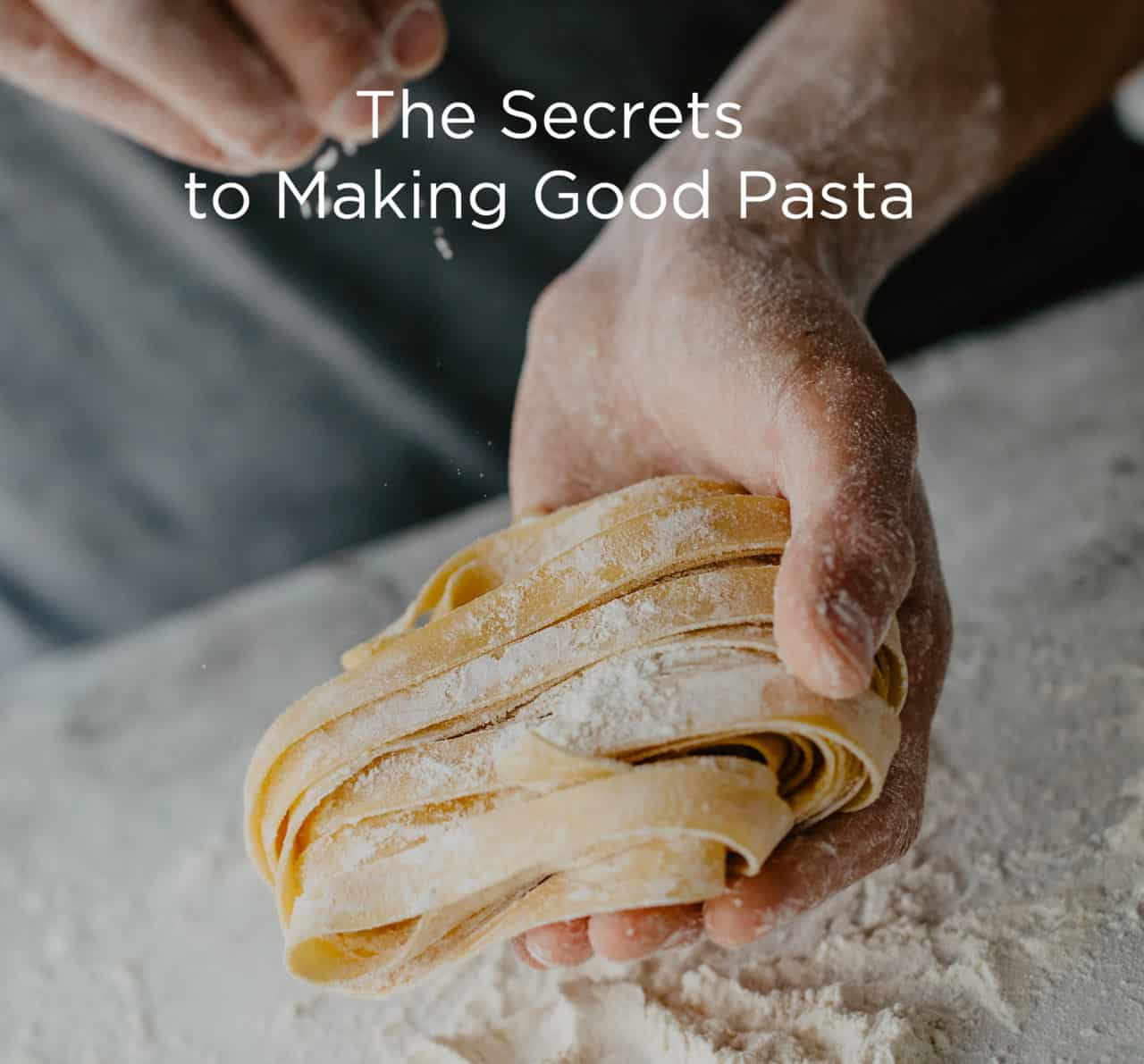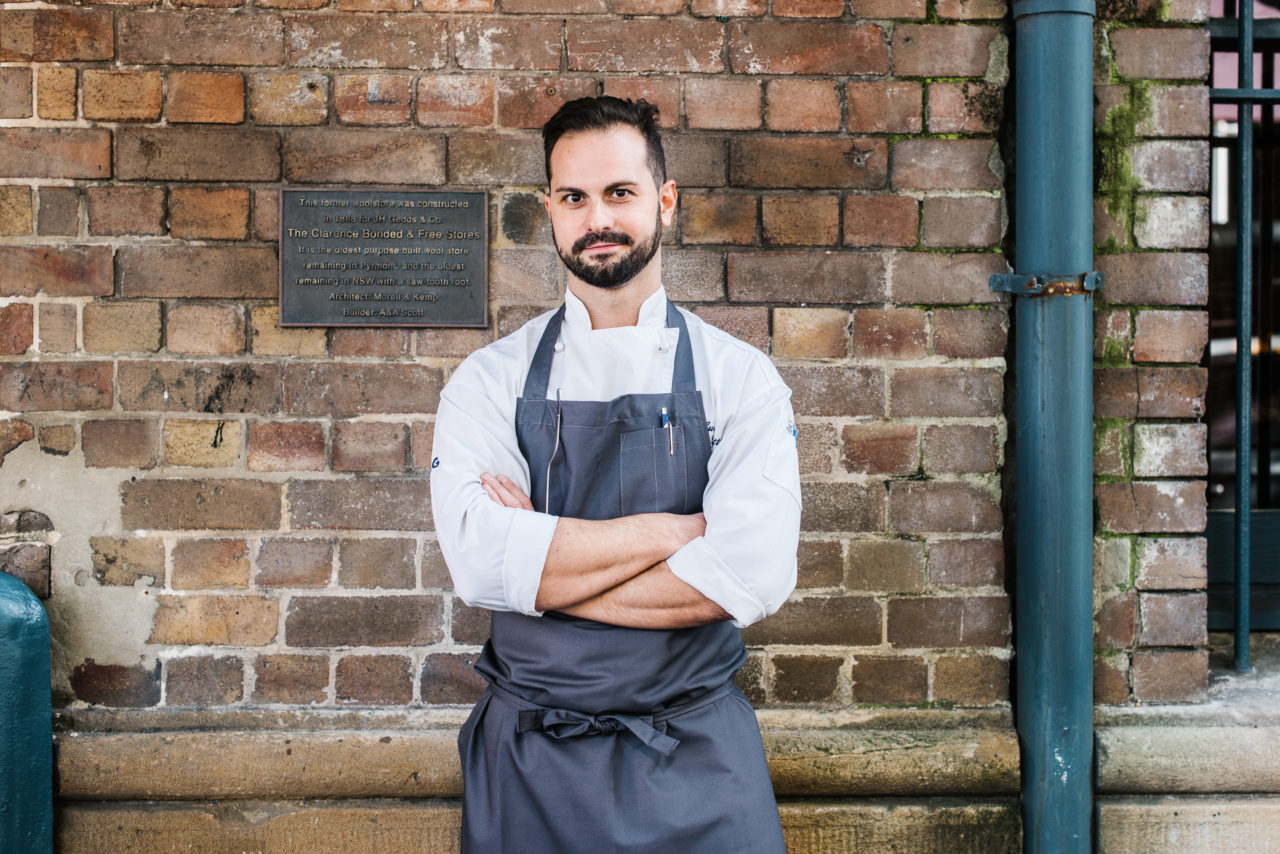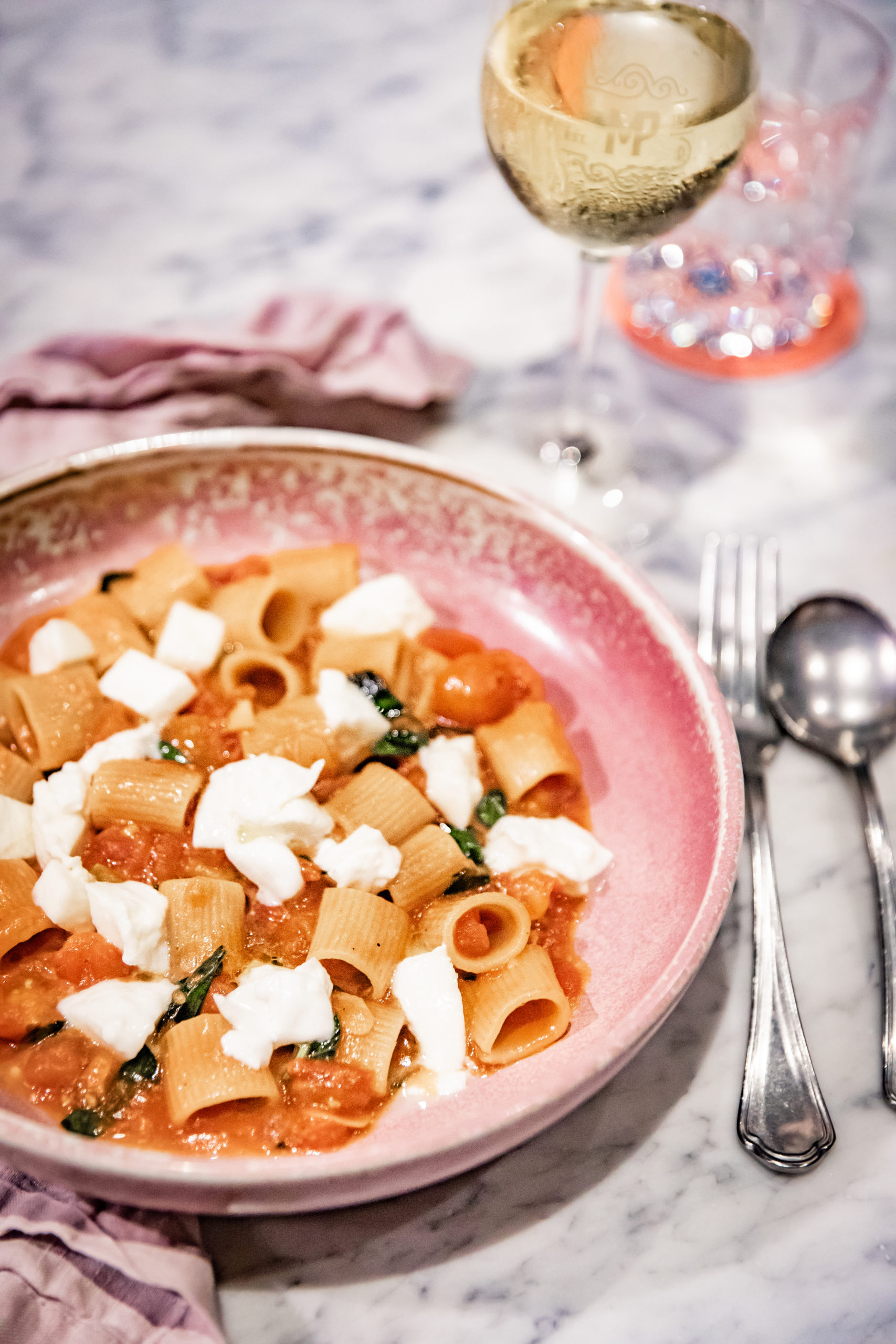The Secrets to Making Good Pasta

Mastering the art of pasta may appear to be a nuanced challenge, however, we’ve compiled a list of chef secrets that will transform your next dinner party. Whether you’re a pasta-making beginner or seasoned home cook, here are six tricks to ensure your pasta tastes just like nonna would make.
Award-wining Head Chef Luca Guiotto of Mister Percy, sat down with us to spill his family secrets and give advice for making incredible pasta at home. From saving your pasta water for sauces to storing your ravioli the right way; we promise to upgrade your Italian cooking knowledge so that you can truly impress your next dinner guests.

- The Most Common Mistake Home Cooks Make when Making Pasta:
As intimidating as handmade pasta preparation may seem, most cooks overcomplicate the process. Chef Luca insists that the key to any delicious meal is to keep your kitchen tidy and avoid making a large mess. Simplicity is the key to traditional Italian cooking, not only in the recipe’s ingredients but also how you prepare the meal. After you’ve discovered a great pasta dough recipe, make sure you allocate enough space to get your hands dirty but keep your kitchen clean!
- Not all Flour is Created Equal:
Choosing the right type of flour may not be intuitive for first time pasta-makers. It’s important to understand how each ingredient impacts the final pasta product, so don’t interchange your cooking components without a quick Google search or phone call to your Italian friend’s nonna.
Chef Luca points out that Semolina, finely milled 00 and homemade flours tend to be the most common ingredients for true Italian pastas, and that each one will create a wildly different eating experience. Semolina, for example, adds a rough, heartiness that can help sauce cling to your pasta. For Mister Percy’s favourite Lamb Paradelle, he uses his own blend of 00 flour to create a soft, silkier noodle that is still filling and comforting all year round.
Over time, once you’ve familiarised yourself with the basic fresh pasta dough-making process, you can experiment with different blends of flours and ingredients. They say you should dress to impress, so why not play with vegetable puree and powder, like spinach or beetroot, to create a vibrantly coloured pasta!
- There’s No Need for a Pasta Maker for Homemade Pasta:
While you can easily find an affordable $35 pasta cutting machine online, Chef Luca prefers cutting his noodles by hand at Mister Percy. Pasta cutting machines help roll out and finely slice your dough into perfect strands; however, they’re totally unnecessary for homemade noodles & pasta, such as paradelle and linguini. Even ravioli and gnocchi can be pressed and rolled by hand using a basic salad fork.
We promise that rolling out your dough by hand and cutting it with an everyday kitchen tool will be rewarding not only for yourself but also your guests, who will marvel at the subtleties of each noodle they eat!
- Save it for Later:
After creating your beautiful pasta at home without a machine, you can drop the soft, doughy strands directly into boiling water and prepare yourself for a tasty feast soon after. But to enjoy the fruits of your labour for longer, Chef Luca has revealed his top storage secrets that are used in the Mister Percy kitchen.
Since he first started cooking at age 15, Chef Luca was taught to always lay down a cotton cloth on a baking tray and to sprinkle a blend of polenta and 00 flour on and around the fresh pasta to absorb humidity and prevent sticking. You can store the tray into your fridge for up two to three days, which allows you to prepare fresh pasta in advance before a big dinner party.
Alternatively, you can freeze your pasta for to two to three months; however, Chef Luca warns that home cooks should be mindful of stuffed pastas, like ravioli and tortellini. Fillings that are more wet, such as spinach and ricotta, will quickly expand when frozen and crack your pasta, making it challenging to cook afterwards. He recommends cooking it within 30 minutes of preparation or carefully squeezing the liquid out of your spinach and ricotta before stuffing it into your homemade pasta and storing it.
- Simple Cooking Secrets:
While cooking your pasta seems undoubtably simple, Chef Luca has a few pro tips that will add subtle yet striking flavour to your final dish. “Always salt your water. Your cooking water should taste like the sea- that’s what we say in Italy! My own mother always forgot the salt.” Nonetheless, be weary of over-salting your water by tasting it before you drop in your fresh pasta.
Not only will the salt flavour your homemade fresh pasta, but it will eventually help transform the liquid into the ultimate emulsifier. Chef Luca recommends keeping a small cup of pasta water on the side after draining. Most professional kitchens will combine the salty liquid to their sauce to help bind it with cooked pasta.

- Find the Perfect Wine Pairing:
No fresh pasta dish is complete without the perfect complement: vino! Chef Luca’s favourite pasta and wine combination is the Mister Percy Spanner Crab Linguini paired with a North Italian Chardonnay or Riesling. He recommends pairing any seafood pasta with a light, dry and fruity white wine. For heavier, hearty red sauce pastas, a light Pinot Noir is the perfect match!
Are you ready to fall in love with learning how to make this classic Italian fare? You can pop by Mister Percy on any day from 5pm till late to taste Chef Luca’s favourites or you can even sign up for a weekend pasta-making class with the Head Chef himself!
